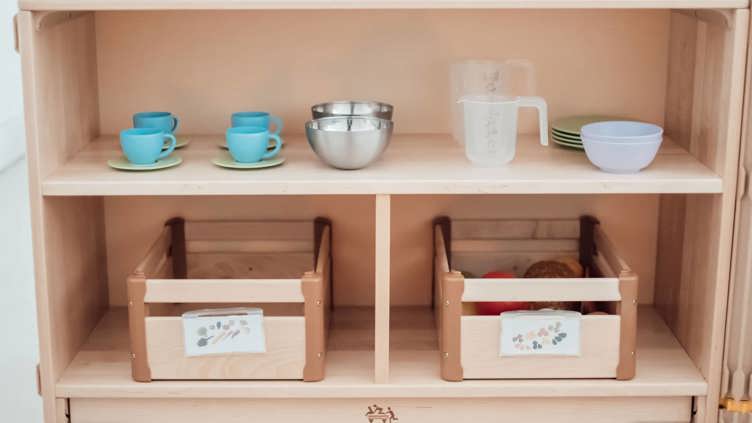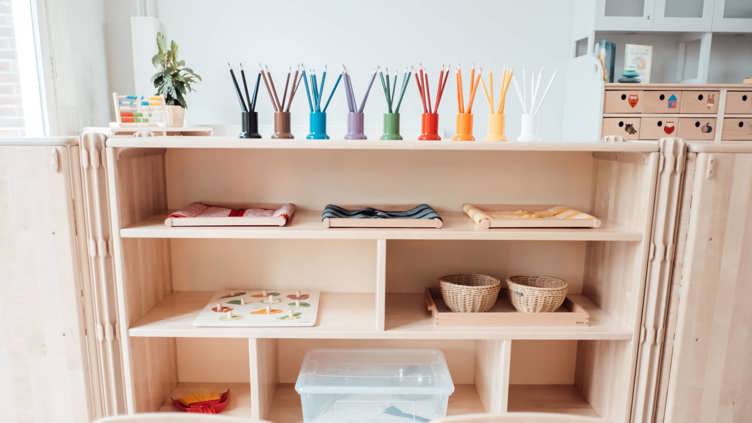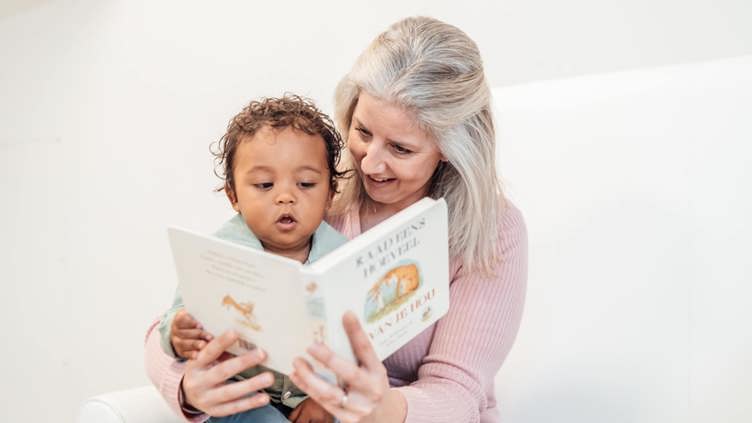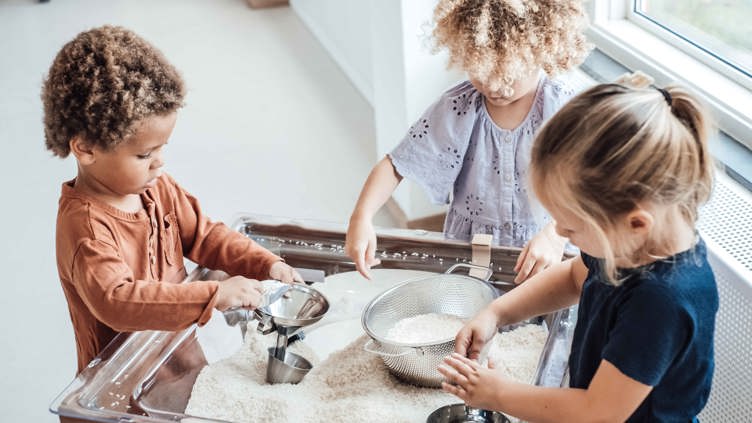Step into any group and you'll see familiar corners and materials everywhere. They invite exploration and play! We are happy to tell you how we use our furniture at the locations. Together with the play materials, we let it grow with your child.
Diaper changing, playing, eating
It’s essential that children have space to move freely. Here are a few examples of how we offer your child space…
Encouragement
Kindergarden staff encourages our children to discover how to use the materials and space, observing and redirecting the children where necessary. They explain things and help the children resolve issues themselves.
We create the conditions
The group room itself, the different corners and spaces each with its specific function – everything is well-prepared. Whenever you enter one of our baby, infant, toddler, and older toddler groups you’ll find clearly marked corners, and toys and other play equipment that are adapted to the children’s needs and developmental stages. As the children grow and develop, so does the size of the furniture and educational level of the toys we offer. This stimulates the natural creativity within each child. We’re always working hard to create the conditions that encourage children, and therefore your child as well, to play together and interact.













